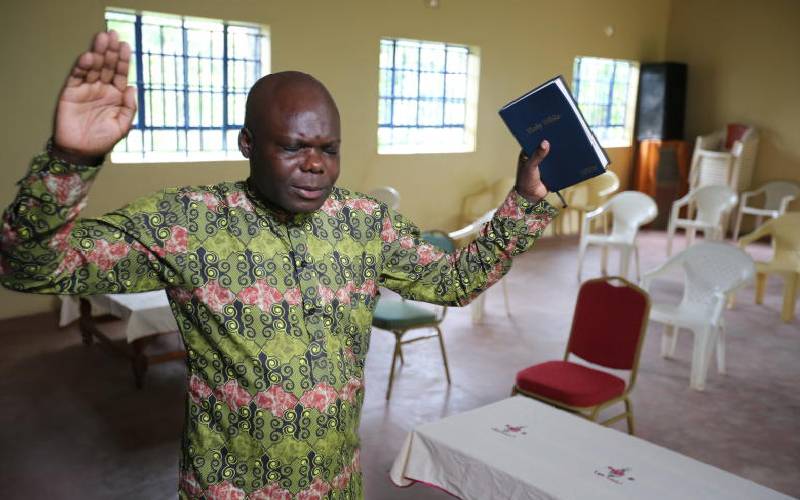×
The Standard e-Paper
Join Thousands Daily

Rev William Owuya of Jesus Wonders Victory Church in Kakamega prays alone in the church at Sichirai in Kakamega town on March 29, 2020. [Benjamin Sakwa, Standard]
The hunger for God in Kenya is amazing. Just look at the number of calls made to open religious worship places amid coronavirus containment efforts.